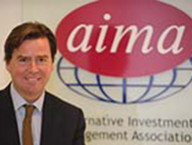Stockholm (NordSIP) – From niche to mainstream: Responsible Investment and hedge funds, a new report from the Alternative Investment Management Association (AIMA) and the Cayman Alternative Investment Summit (CAIS), has found that hedge fund managers are gradually reconciling themselves to responsible investment principles, particularly in North America.
The report, which surveyed 80 asset managers with a collective $550 billion in hedge fund AUM, finds that hedge fund managers are increasingly heeding calls from investors for higher reporting standards and alignment with UN PRI principles.
The report finds that:
As responsible investment goes mainstream, at least $59 billion in hedge fund assets is currently being managed under responsible investment principles (as measured by the 80 hedge funds that reported to the survey). 51% reported increased investor interest, particularly in the United States.
Smaller hedge fund companies are joining their larger competitors in embracing responsible investment. 40% of hedge funds currently practice RI of some kind, with 60% of larger firms reporting that they do. The adoption of RI is a permanent, structural trend across the hedge fund industry.
Hedge funds are increasingly opting to sign the UN PRI. Investors are increasingly demanding more transparency into each hedge fund’s governance and investment processes, including the monitoring and reporting stipulated by the PRI, and hedge funds are being compelled to act accordingly.

One third of hedge funds surveyed have hired a responsible investment expert, or will do so within the next year. Investment into human capital is becoming a prerequisite for incorporating RI into investment strategy.
One in five hedge funds surveyed reported having over 50% of total investment capital managed under RI principles. Remaining challenges include inadequate methodologies for the calculation of sustainability risks and a lack of relevant disclosure from companies.
“Responsible investment is becoming increasingly important to the hedge fund industry and firms are responding to investor demand by investing in the data and expertise they need in order to accurately measure the social and environmental dimensions of their investments,” said AIMA CEO Jack Inglis.
“As such investments become more sought after, these additional fiduciary duties require managers to ensure they have a very clear understanding of their clients’ investment objectives. In the coming years we expect the industry to be very innovative in matching up the need to deliver on investors’ deeply held beliefs while continuing to deliver on the goal of providing superior risk-adjusted returns.”
Another joint report from NUWA/ISS researchers published late last year in Stockholm evaluates asset managers, mostly in the form of hedge funds, to gauge how these approach issues of sustainability and responsibility in their organisations and investment process and attempts to map different processes to explain where in the chain responsibilities begin and end for different actors, and where client demands play a role.
Read the new AIMA/CAIS report here.
Picture: (c) Ase—-shutterstock.com
